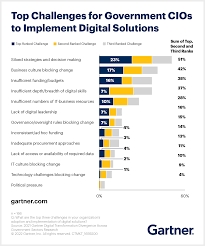The Importance of IT Business Consulting Services
In today’s rapidly evolving digital landscape, businesses face increasing challenges in leveraging technology effectively to drive growth and stay competitive. This is where IT business consulting services play a crucial role in guiding organizations through complex IT decisions and strategies.
What are IT Business Consulting Services?
IT business consulting services involve experts who provide strategic guidance and solutions to help businesses optimize their IT infrastructure, systems, and processes. These services cover a wide range of areas, including:
- IT strategy development
- Technology implementation and integration
- Cybersecurity assessments and solutions
- Digital transformation initiatives
- Cloud computing adoption
- Data management and analytics
The Benefits of IT Business Consulting Services
By engaging with IT business consulting services, organizations can benefit in various ways:
- Strategic Alignment: Consultants help align technology initiatives with business goals to drive growth and innovation.
- Cost Efficiency: By optimizing IT resources and processes, businesses can reduce operational costs and improve ROI.
- Risk Mitigation: Consultants assess cybersecurity risks and implement measures to protect valuable data from potential threats.
- Innovation: Leveraging the latest technologies and best practices can enhance competitiveness and market positioning.
- Efficiency Improvement: Streamlining processes through technology enhancements leads to increased productivity and operational efficiency.
Choosing the Right IT Business Consulting Partner
When selecting an IT business consulting partner, organizations should consider factors such as expertise, experience, industry knowledge, and track record of success. A trusted consulting firm can provide tailored solutions that address specific business needs while staying ahead of technological advancements.
In conclusion, IT business consulting services play a vital role in helping businesses navigate the complexities of the digital age. By partnering with experienced consultants, organizations can unlock the full potential of technology to drive growth, innovation, and competitive advantage.
Maximize Success: 7 Key Benefits of IT Business Consulting Services
- Strategic alignment of technology with business goals
- Expert guidance on IT strategy development
- Cost efficiency through optimized IT resources
- Risk mitigation with cybersecurity assessments and solutions
- Access to the latest technologies and best practices
- Increased operational efficiency and productivity
- Enhanced competitiveness and market positioning
Six Drawbacks of IT Business Consulting Services: Costs, Conflicts, and Challenges
- Costly services that may strain the budget of small businesses.
- Potential for conflicts of interest if the consulting firm has partnerships with specific technology vendors.
- Dependency on external consultants can hinder internal skill development within the organization.
- Difficulty in measuring the tangible ROI of consulting services in terms of direct financial impact.
- Risk of receiving generic recommendations that may not be tailored to the unique needs of a business.
- Time-consuming process to implement recommended changes and strategies, leading to delays in realizing benefits.
Strategic alignment of technology with business goals
Effective IT business consulting services excel in strategically aligning technology with business goals to drive growth and innovation. By ensuring that technology initiatives are directly linked to the overarching objectives of the organization, businesses can optimize their resources and investments for maximum impact. This alignment not only enhances operational efficiency but also empowers companies to stay agile and competitive in today’s fast-paced digital landscape. Ultimately, the ability to synchronize technology with business goals enables businesses to leverage IT as a powerful tool for achieving long-term success and sustainable growth.
Expert guidance on IT strategy development
Expert guidance on IT strategy development is a key benefit of IT business consulting services. By leveraging the knowledge and experience of seasoned consultants, businesses can align their technology initiatives with their overall goals and objectives. These experts help organizations identify opportunities for innovation, streamline processes, and make informed decisions that drive growth and competitiveness. With a well-defined IT strategy in place, businesses can navigate the complexities of the digital landscape with confidence and clarity, ensuring that their technology investments yield maximum returns.
Cost efficiency through optimized IT resources
One significant advantage of IT business consulting services is the cost efficiency achieved through the optimization of IT resources. By working with experienced consultants, businesses can streamline their IT infrastructure and processes to eliminate inefficiencies and reduce unnecessary expenses. This optimization not only helps organizations save money but also ensures that they are making the most out of their technology investments, leading to improved financial performance and a higher return on investment.
Risk mitigation with cybersecurity assessments and solutions
One significant advantage of IT business consulting services is the effective risk mitigation provided through cybersecurity assessments and solutions. By engaging with expert consultants, businesses can proactively identify and address potential cybersecurity threats, safeguarding their valuable data and systems from malicious attacks. Through comprehensive assessments and tailored security solutions, organizations can enhance their resilience to cyber risks, ensuring a secure digital environment that protects both their assets and reputation.
Access to the latest technologies and best practices
Access to the latest technologies and best practices is a significant advantage of IT business consulting services. By partnering with experienced consultants, businesses can stay abreast of emerging technologies and industry trends, ensuring that they leverage the most advanced tools and strategies to drive innovation and competitiveness. Consultants bring expertise in implementing best practices that have been proven effective in similar environments, enabling organizations to optimize their processes and achieve optimal results. This access to cutting-edge technologies and industry insights empowers businesses to make informed decisions that propel them ahead of the curve in today’s fast-paced digital landscape.
Increased operational efficiency and productivity
One significant benefit of IT business consulting services is the enhancement of operational efficiency and productivity within organizations. By optimizing IT resources, streamlining processes, and implementing technology-driven solutions, businesses can operate more effectively and achieve higher levels of productivity. Consultants work closely with clients to identify inefficiencies, automate tasks, and leverage innovative tools that enable employees to work more efficiently, ultimately leading to improved overall performance and output.
Enhanced competitiveness and market positioning
One significant advantage of IT business consulting services is the enhancement of competitiveness and market positioning for organizations. By leveraging the expertise of consultants in implementing cutting-edge technologies and best practices, businesses can differentiate themselves in the market, stay ahead of competitors, and adapt quickly to changing industry trends. This proactive approach not only strengthens their market position but also enables them to attract new customers, retain existing ones, and drive sustainable growth in a competitive business landscape.
Costly services that may strain the budget of small businesses.
One significant drawback of IT business consulting services is their cost, which can be prohibitive for small businesses operating on limited budgets. Engaging with IT consultants often involves substantial fees for their expertise and services, which may strain the financial resources of smaller enterprises. The upfront investment required for IT consulting can be a barrier for small businesses looking to enhance their technology infrastructure and processes. As a result, some small businesses may find it challenging to justify the expense of IT consulting services, potentially limiting their ability to leverage technology effectively to drive growth and competitiveness.
Potential for conflicts of interest if the consulting firm has partnerships with specific technology vendors.
One significant con of IT business consulting services is the potential for conflicts of interest when the consulting firm maintains partnerships with specific technology vendors. In such cases, there may be a risk of biased recommendations or solutions that prioritize the interests of partner vendors over the actual needs of the client. This can compromise the objectivity and impartiality of the consulting advice provided, leading to suboptimal technology decisions and potentially hindering the client’s ability to explore a broader range of solutions that may better suit their requirements. Careful consideration and transparency are essential to mitigate this risk and ensure that consulting engagements prioritize the client’s best interests above all else.
Dependency on external consultants can hinder internal skill development within the organization.
Dependency on external consultants in the realm of IT business consulting services can potentially hinder the development of internal skills within an organization. Relying heavily on external expertise may limit opportunities for employees to enhance their own knowledge and capabilities in managing IT-related tasks independently. This overreliance can create a scenario where internal staff members become dependent on external consultants for routine tasks or decision-making processes, impeding their professional growth and inhibiting the cultivation of a self-sufficient and skilled workforce within the organization. Striking a balance between leveraging external support and fostering internal skill development is essential to ensure long-term sustainability and proficiency in managing IT functions effectively.
Difficulty in measuring the tangible ROI of consulting services in terms of direct financial impact.
One significant challenge associated with IT business consulting services is the difficulty in measuring the tangible Return on Investment (ROI) of these services in terms of direct financial impact. Unlike some investments where ROI can be easily quantified through revenue generation or cost savings, the value derived from IT consulting services may not always translate directly into monetary terms. The intangible benefits such as improved operational efficiency, enhanced cybersecurity, and strategic alignment with business goals can be challenging to quantify in traditional financial terms, making it complex to assess the true financial impact of consulting services on a company’s bottom line.
Risk of receiving generic recommendations that may not be tailored to the unique needs of a business.
One significant drawback of IT business consulting services is the risk of receiving generic recommendations that may not be tailored to the unique needs of a business. In some cases, consultants may provide one-size-fits-all solutions that do not take into account the specific challenges, goals, and operational requirements of a particular organization. This can result in ineffective strategies and implementations that fail to deliver the desired outcomes or address the individual complexities of a business. It is essential for businesses to carefully vet consulting partners and ensure that they have the expertise and flexibility to provide customized solutions that truly align with the organization’s objectives.
Time-consuming process to implement recommended changes and strategies, leading to delays in realizing benefits.
One significant drawback of IT business consulting services is the time-consuming process required to implement recommended changes and strategies. This can result in delays in realizing the anticipated benefits and impact on the organization. As businesses strive to adapt to evolving technologies and market demands, the lengthy implementation timeline may hinder their ability to stay agile and competitive. Moreover, the transition period can be disruptive to daily operations and may require additional resources, further complicating the process. Ultimately, the delay in reaping the benefits of consulting recommendations can impede business growth and hinder strategic progress.


